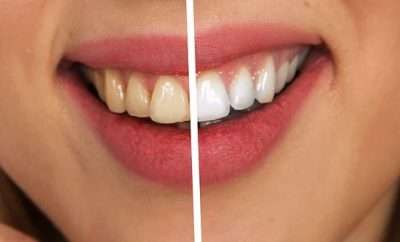
Why it is Important to Treat Your TMJ as Soon as You Can
Why it is Important to Treat Your TMJ as Soon as You Can
Pain and difficulty moving the jaw are symptoms of temporomandibular joint disorder (TMJ). TMJ can become more severe and cause additional complications if not treated. Therefore, you should seek treatment for your TMJ right away. The reasons you should get treatment for TMJ as soon as possible are discussed below. Why it is important to treat your TMJ as soon as you can.
Justifications for Seeking Out TMJ Treatment
Jaw, face, and neck pain are all possible temporomandibular joint disorder (TMJ) symptoms. TMJ can progress to more severe issues if left untreated. Below are reasons why you should get your TMJ checked out immediately.
If Treated Early Enough, Further Damage Can Be Avoided
Early diagnosis and treatment of TMJ can reduce the risk of permanent impairment of the jaw joint. Joint inflammation, brought on by the condition’s progression, is a common source of additional pain and disability. Joint damage from this condition can be severe enough to necessitate surgical intervention.
By seeking early treatment, you can prevent your condition from worsening and improve your chances of successful TMJ treatment in Raleigh, NC, or an area near you.
Relieving Suffering
Treating TMJ as soon as possible can help reduce associated pain and discomfort. Pain in the jaw, head, ears, and neck are all possible TMJ symptoms. Seeking treatment early can lessen the duration of these symptoms and provide much-needed relief from pain and distress.
Enhanced Standard of Living
If you suffer from TMJ, you may find eating, speaking, and sleeping challenging. TMJ can negatively impact a person’s quality of life, but catching it early and receiving treatment can help. Doing so can improve your mood and make you feel more responsible for your life.
Staying Clear of Additional Problems
Grinding your teeth, clenching your jaw, and other mental health issues can all stem from TMJ. Avoid these side effects and maintain quality of life by getting treatment for TMJ as soon as symptoms appear.
TMJ: Typical Root Causes
Teeth grinding, jaw injury or trauma, arthritis, stress, anxiety, and poor posture are all common contributors to temporomandibular joint disorder (TMJ). Knowing the root causes of TMJ can help you take preventative measures and identify when it’s time to see a doctor. Some of the most typical reasons for TMJ dysfunction are discussed below.
Clenching and Grinding of the Teeth
Bruxism, or teeth grinding and clenching, commonly contributes to temporomandibular joint disorder. As a result of the constant stress, the jaw joint may become inflamed and painful. A mouth guard can protect your teeth and jaw from damage if you grind your teeth at night.
Traumatic Jaw Injury
An injury or trauma to the jaw can also cause TMJ. The jaw joint is vulnerable to trauma from falls, car wrecks, and punches to the face. Seeking medical attention promptly after experiencing jaw trauma is essential for avoiding the development of TMJ.
Arthritis
TMJ is often brought on by arthritis as well. Arthritis’s inflammation can damage the jaw joint, leading to pain and discomfort. The symptoms of arthritis, which can worsen and lead to TMJ if left untreated, must be managed.
Tension and Worry
TMJ can develop from chronic stress and anxiety-related teeth-clenching and jaw-joint stress. It’s important to find methods of dealing with stress and anxiety, whether through physical activity, meditation, or therapy.
Misaligned Spine
TMJ symptoms may also be exacerbated by slouching. Temporomandibular joint disorder (TMJ) can be caused by bad postures, such as slouching or holding the head in a forward position. If you want to avoid developing TMJ, good posture is a must.
Tips for Spotting TMJ Symptoms Before it’s Too Late
Symptoms of TMJ recognized early can reduce the severity of the condition and increase the likelihood that it will respond to treatment. Learn more about the warning signs of TMJ and how to treat it early by reading the following advice.
Sore Jaw
Jaw pain is one of the first and most obvious signs of temporomandibular joint disorder. Your jaw or face may hurt in a dull, aching way that gets worse with movement or pressure. Pain in this area may radiate to the ears, neck, or shoulders.
It sounds Like Clicking or Popping
A click or pop when opening or closing the mouth is another early symptom of TMJ. There may be pain or discomfort and a clicking or popping sound coming from your jaw joint, which indicates a problem with the jaw joint or a misaligned jaw.
Having Trouble Chewing or Talking
If you suffer from TMJ, you might find it hard to eat, talk, or even open your mouth very wide. Because of possible jaw joint stiffness or limited movement, simple tasks like chewing and speaking may become challenging.
Pain in the Head or the Ear
If your headaches or earaches are concentrated in the temples or ears, it may be due to a temporomandibular joint disorder (TMJ). There may be additional signs of TMJ, such as jaw pain or clicking sounds, in addition to these.
Conclusion
Managing TMJ symptoms and preventing their worsening requires prompt treatment. If you catch TMJ early and get treatment, you can avoid it interfering with your life and get it back under control. Do something about your TMJ symptoms if you’re experiencing them.














